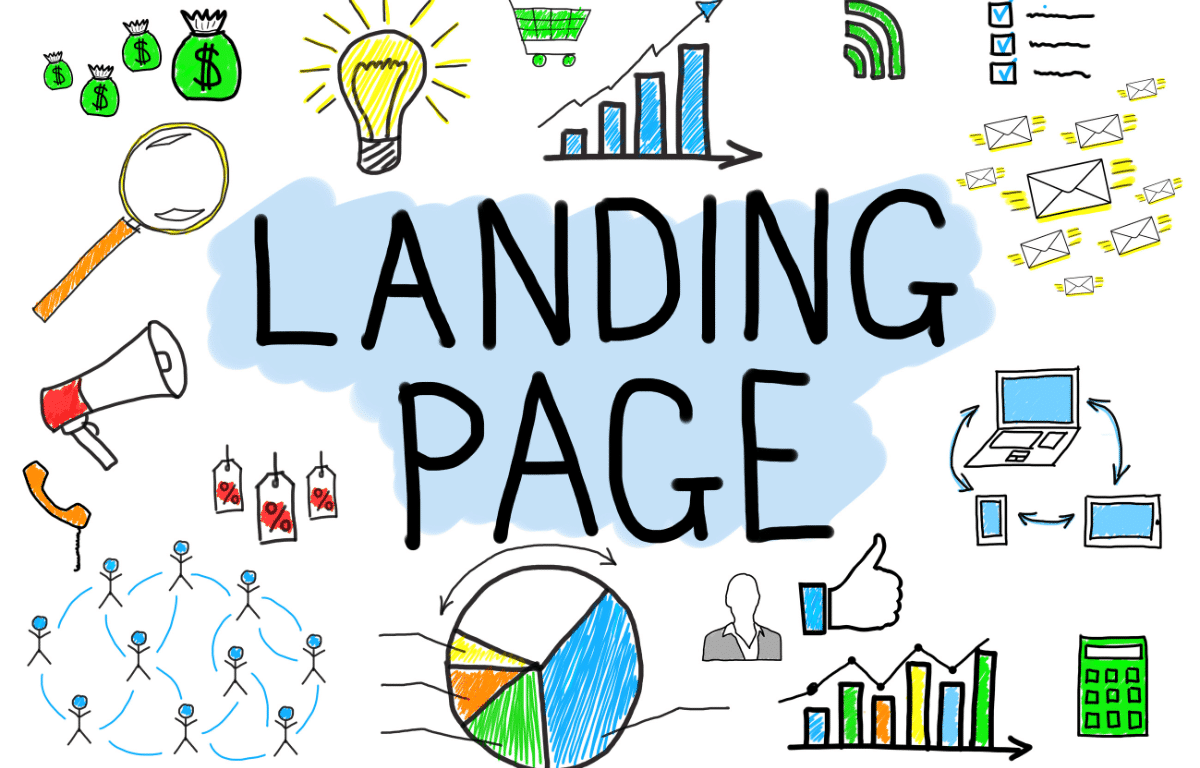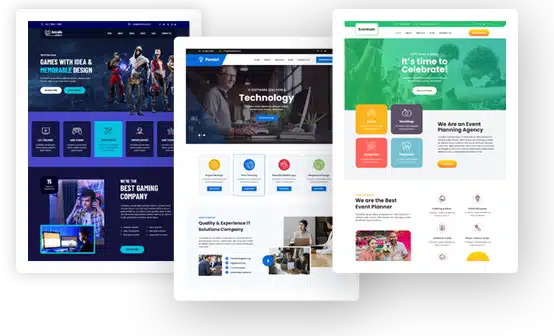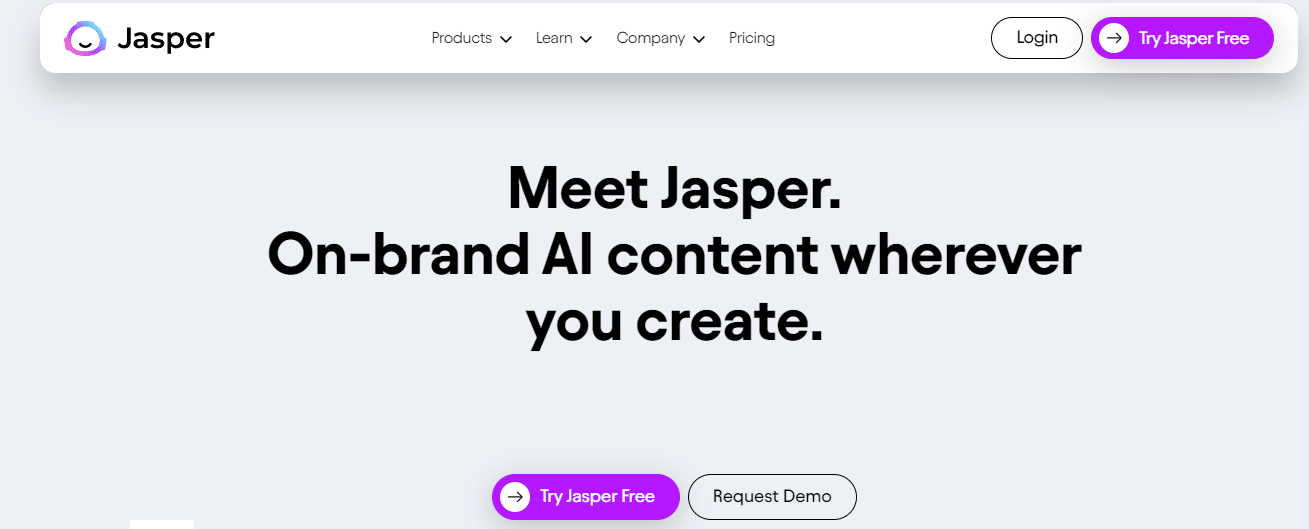Landing Page Optimization: 10 Tips for Success

There’s fierce competition for online visibility in today’s digital landscape. Businesses and marketers are continuously seeking proper ways to maximize their online presence and drive conversions. One powerful strategy that plays a pivotal role in achieving these goals is landing page optimization.
Landing page optimization involves a combination of data-driven insights, user-centric design, persuasive copywriting, and technical fine-tuning. This process is essential for ensuring that your landing pages not only rank well in search engine results but also provide an exceptional user experience.
In this article, we’ll delve into the world of landing page optimization and share valuable tips and strategies to help you achieve success. It doesn’t matter whether you’re a seasoned marketer looking to enhance your existing landing pages or a business owner aiming to increase your website’s conversion rate. Our comprehensive guide will equip you with the knowledge required to create highly effective landing pages that captivate your target audience and bring tangible results.
What Is Landing Page Optimization?
Landing page optimization refers to the practice of improving and fine-tuning a particular web page, known as a landing page, with the goal of increasing its effectiveness in converting visitors into leads or customers.
The primary objective of landing page optimization is to boost user experience, increase engagement, and bring in a desired action. These actions include making a purchase, filling out a form, subscribing to a newsletter, or downloading content.
Optimizing a landing page involves various on-page elements like design, copywriting, layout, calls-to-action, as well as technical aspects, aimed at enhancing its overall performance, search engine rankings, and conversion rate.
10 Landing Page Optimization Tips to Boost Conversions
Landing pages have 160% higher conversion rates when compared to other sign-up forms, including pop-ups and sign-up boxes. Optimizing your landing page is a process that’s best started before you even publish the actual page. It should then continue throughout the time that the page exists on the Web.
Below, you’ll find tips on how to optimize your landing pages for maximum performance in this day and age.
-
Get a better understanding of your audience
The first and crucial tip for successful landing page optimization is gaining a deep understanding of your target audience. To create a landing page that resonates with your visitors and compels them to take action, you need to know who they are, what they’re looking for, and how they behave online.
Begin by conducting thorough keyword research to identify the specific search terms and phrases your target audience is using to find products or services like yours. You don’t even have to do this manually. Automated SEO tools and analytics data can provide all the valuable insights into popular search terms, competition, and user behavior.
You also have to know that understanding your audience’s search intent makes it easier to align your landing page content with their needs and optimize it accordingly. Are they looking for information, a comparison, or ready to make a purchase? Analyze the common questions, pain points, and motivations of your audience to address them effectively in your landing page content.
-
Craft a powerful headline
One of the most critical aspects of landing page optimization is crafting a strong and compelling headline. Your headline is the first element that visitors see. This means that it plays a crucial role in capturing their attention and encouraging them to explore further.
One thing you can do is to use attention-grabbing words and phrases relevant to your target audience. Use questions, intriguing statements, or unique selling propositions to pique their curiosity and compel them to continue reading.
You need to make sure that your headline is simple, straightforward, and easily understandable. The goal is to quickly communicate your message. And so, don’t use jargon or complicated language that may confuse or alienate readers.
It helps to incorporate some important keywords in the headline. Doing so enables search engines to also understand what your landing page is about too.
Take the example of Jasper, a popular writing tool that uses AI:

As you can see, Jasper’s headline incorporates simplicity, a benefit (on-brand content), and a relevant keyword in its niche (AI).You’re free to even do A/B testing where you try headline variations to determine which one resonates best with your audience. Test different wording, phrasing, or even headline structures to identify the most effective approach.
-
Create a sense of urgency in the copy
Creating a sense of urgency is a powerful persuasive technique that can significantly impact the conversion rate of your landing page. It acts to instill a feeling of time-sensitivity or scarcity and motivates visitors to take immediate action.
Here are some effective strategies for creating a sense of urgency on your landing page:
1. Limited-time offers: Highlight time-limited promotions, discounts, or special deals to create a sense of urgency. Clearly communicate that the offer is available for a limited period, encouraging visitors to act promptly to take advantage of the opportunity. Countdown timers or ticking clocks can visually reinforce the urgency.
Example: “Don’t miss out on our 24-hour flash sale – save 50% off all products until midnight tonight!”2. Scarcity of products or services: Emphasize the limited availability of your products or services. Communicate that there is a limited quantity or a limited number of spots remaining, indicating that demand is high. This creates a fear of missing out and prompts visitors to take action to secure their purchase.
Example: “Only 10 spots left for our exclusive workshop – reserve your seat before it’s fully booked!”3. Seasonal or holiday offers: Leverage specific seasons or holidays to create urgency. Tie your promotion to a specific occasion, such as a holiday sale, seasonal discount, or limited-time offer tied to a special event. Communicate that the offer is only available during that specific period, motivating visitors to act before it expires.
Example: “Celebrate the holidays with our special 48-hour sale – save big on our entire product range until Christmas Eve!”Nowadays, we even have numerous AI-powered copywriting tools that can assist you to write high-converting copy. You’ll find that they have various use cases and copywriting formulas to choose from.
-
Utilize customer success stories
Customer success stories, also known as testimonials or case studies, are powerful tools for optimizing landing pages. They provide social proof and build trust by showcasing the positive experiences and outcomes of satisfied customers. A customer success story can take the form of quotes or even better, videos.
When selecting customer success stories, go with the ones that closely align with your target audience’s needs, pain points, and goals. Focus on stories that highlight specific challenges faced by customers and how your product or service helped them overcome those challenges.
Make sure that they demonstrate tangible results, such as increased revenue, more productivity, and cost savings. It’s best if you provide specific details and metrics. For example, if your product increased a customer’s revenue by 50% or helped them save a certain amount of time, include these measurable outcomes in the success story.
Remember, authenticity is key when presenting customer success stories. Include the real names of your customers (with their permission) to add credibility and trust. Whenever possible, include photos of the customers or their business logos to humanize the testimonials and strengthen their impact on visitors.
-
Use clear and visible calls-to-action (CTAs)
Calls-to-action (CTAs) are vital elements of your landing page that guide visitors toward the desired action. Whether it’s making a purchase, signing up for a newsletter, or requesting a demo, a well-crafted CTA can significantly impact your conversion rates. To optimize your landing page for success, it’s crucial to use clear and visible CTAs that effectively prompt visitors to take action.
Here’s what to do:- Use action-oriented language: This is the kind of language that creates a sense of urgency and aligns with your conversion goal. Some examples are “Get Started Now,” “Sign Up Today,” or “Shop Now.”
- Employ a standout design: Ensure that your CTAs visually stand out on your landing page. Use bold text, design elements (like icons and arrows), and contrasting colors that catch the eye and make the CTA button or link easily identifiable. It’s best if the colors also complement your branding and overall design.
- Place them strategically: Strategic positioning of CTAs in prominent and strategic locations on your landing page can increase visibility and engagement. Place the primary CTA above the fold, where it’s immediately visible without requiring visitors to scroll. Repeat the CTA at appropriate intervals on longer landing pages to reinforce the desired action.
Below is an example of how Shopify, an e-commerce platform, uses CTAs on its landing pages.

The above CTA is strategically placed at the top, clearly states the action a user should take (sign up now), and stands out with its given background color. -
Consider exit intent pop-ups
Not everyone will fill out the form you’ve placed on your landing page. You can still convert an undecided visitor by using an exit pop-up. While pop-ups have garnered a mixed reputation due to their potential to disrupt user experience, they can capture visitors’ attention and encourage them to take desired actions when implemented correctly.
One thing is to ensure that your pop-up clearly communicates the value proposition or offer you are presenting. You need to state the benefits visitors will receive by engaging with the pop-up, whether it’s a discount, exclusive content, a newsletter subscription, or a free download.
Remember, exit-intent pop-ups appear when a visitor shows intent to leave the page and provide a last-chance opportunity to engage them. You could use other triggers, like scrolling depth, time spent on the page, or specific user interactions. Just be strategic and don’t overuse pop-ups to avoid annoying your landing page visitors.
-
Add meta tags to your landing page
Meta titles and meta descriptions are essential elements of your landing page’s HTML code that play a significant role in optimizing your page for search engines and improving click-through rates from search engine result pages (SERPs).
The meta title tag is a concise and accurate description of the content of your landing page. It appears as a clickable headline in search engine results. To optimize your meta title tag. It’s wise to keep it within 50-60 characters to ensure it displays fully in search results.
The meta description provides a brief summary of your landing page’s content. While it doesn’t directly impact search rankings, it plays a crucial role in attracting users to click on your page. Keep it around 150-160 characters to ensure it appears fully on searches.
Also, incorporate relevant keywords naturally into your meta titles and descriptions to improve the page’s relevance to search queries. You could even highlight the unique value proposition, benefits, or incentives visitors will find on your page. -
Incorporate the right visuals
Visual elements are a vital component of landing page optimization, as they have the power to engage visitors, convey information, and drive conversions. It’s best if you only select high-quality images that are visually appealing and relevant to your offering.
Use professional product photos, captivating illustrations, or eye-catching graphics that align with your brand. Avoid using generic or stock images that may feel disconnected from your message.
Videos can as well be a powerful tool for engaging visitors and delivering your message concisely. Add product demonstration videos, explainer videos, or brand stories to communicate information effectively and evoke emotions. Ensure that your videos are well-produced, have clear audio, and are optimized for quick loading.
Another idea is to utilize infographics and data visualizations. These types of visualizations are excellent for presenting complex information in a visually appealing and easy-to-understand format. They include charts, graphs, or visual representations that showcase statistics, comparisons, or key data points.
-
Optimize the landing page structure
Another landing page optimization tip is to simplify the structure of your landing page. You can start with the navigation on your landing page to help visitors find what they’re looking for quickly and effortlessly.
Keep the menu options minimal, preferably limiting it to just the necessary links. Have clear and descriptive labels for navigation items that align with visitor expectations and the purpose of your landing page.
To increase conversion rates, you also need to eliminate unnecessary distractions that can divert visitors’ attention away from your main conversion goal. Use short sentences and paragraphs along with bullet points to keep the page layout clean and uncluttered.
Minimize or even get rid of irrelevant or competing information that can confuse, overwhelm, or lead visitors away. These include external links, social media buttons, and ads.
Don’t forget to optimize your landing page for a seamless mobile experience. Make it fully responsive and ensure that the text and visuals used can adapt to different screen sizes and orientations. This is how you’ll be able to reach a broader audience and get more conversions.
-
Increase your landing page load speed
Page load speed is a critical factor in landing page optimization, as it directly impacts user experience, engagement, and conversion rates. Slow-loading pages can lead to higher bounce rates and frustrated visitors. Whether you’re working on your own or partnering with a landing page optimization company, improving your page load speed is essential. Here are some tips to get started:
- Optimize image size and format: Images often contribute to the majority of a page’s file size. Use image compression tools or plugins to automatically compress images before uploading them to your landing page. Also, modern image formats such as WebP, can offer higher compression rates compared to traditional formats like JPEG or PNG.
- Enable browser caching: Browser caching allows visitors to store certain elements of your landing page locally, such as images, CSS, and JavaScript files. Returning visitors can retrieve these elements from their local cache instead of requesting them from the server again. You could use caching plugins to reduce the load on the server and significantly improve page load speed for subsequent visits.
- Use Content Delivery Networks (CDNs): CDNs store copies of your landing page on servers located in various geographic locations. When a visitor accesses your landing page, the CDN serves the page from the server closest to their location, reducing the physical distance data has to travel and improving load times.
Conclusion
Optimizing your landing page is essential for driving conversions and achieving success in your online marketing efforts. If you implement the right strategies and techniques, you can create a highly effective landing page that captures visitors’ attention, engages them, and compels them to take action.
Throughout this article, we’ve explored various tips for landing page optimization. From creating a strong and compelling headline to adding urgency to the copy, incorporating visuals, and optimizing the page structure, each tip plays a useful role in maximizing the impact of your landing page.
All you need to do now is put these tips into action, continuously refine your landing page, and enjoy the benefits of increased conversions and business growth.
Mike Stuzzi Author
Mike Stuzzi is an online entrepreneur who blogs at MikeStuzzi.com. He publishes helpful guides on starting online businesses, the best business and AI tools to use, and his personal experiences on the site.



